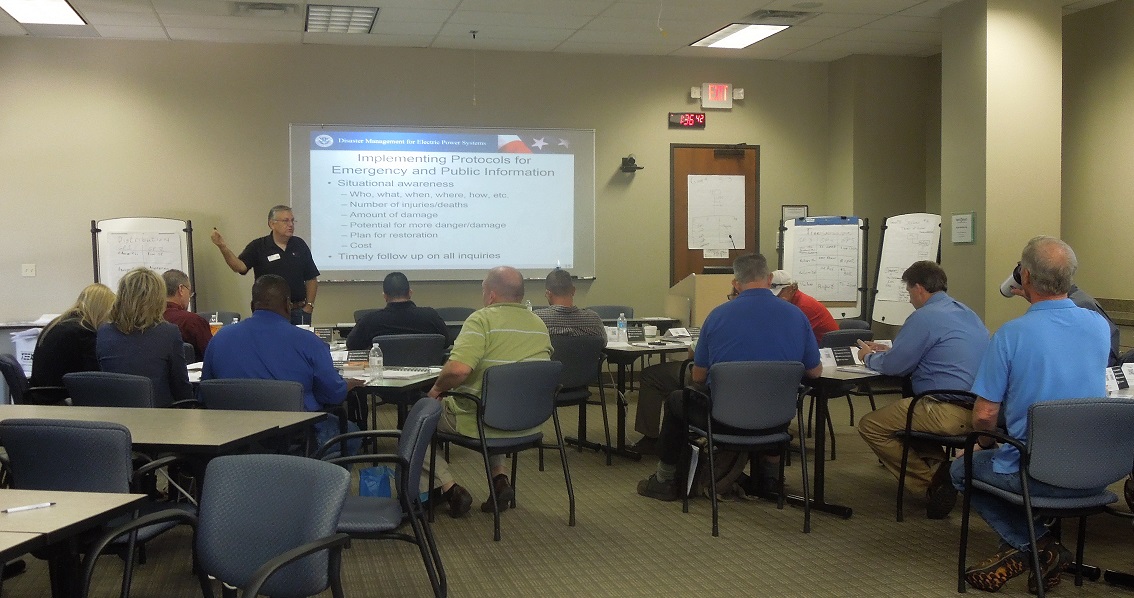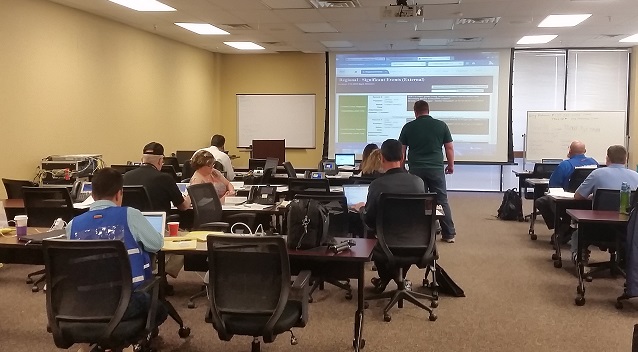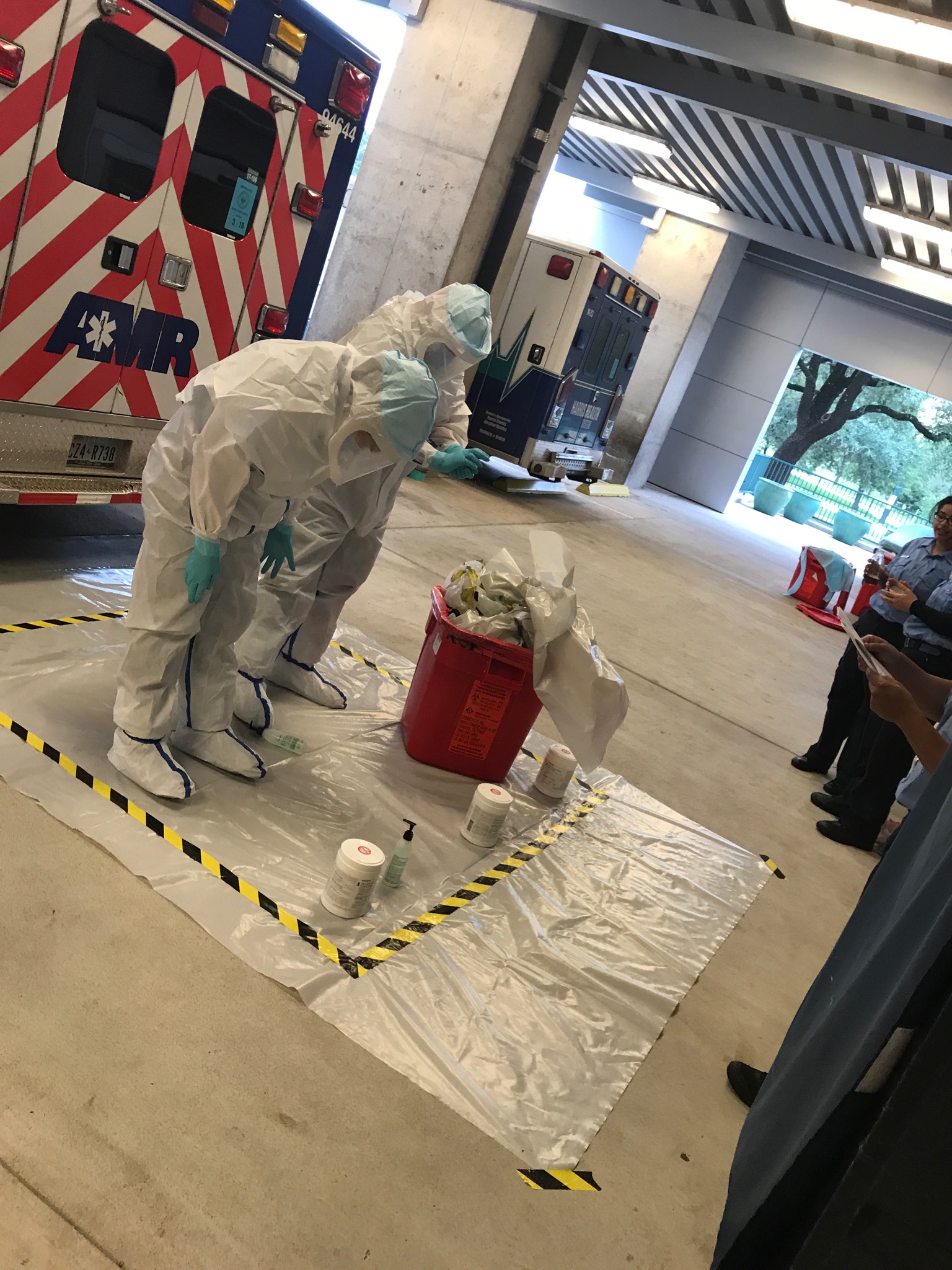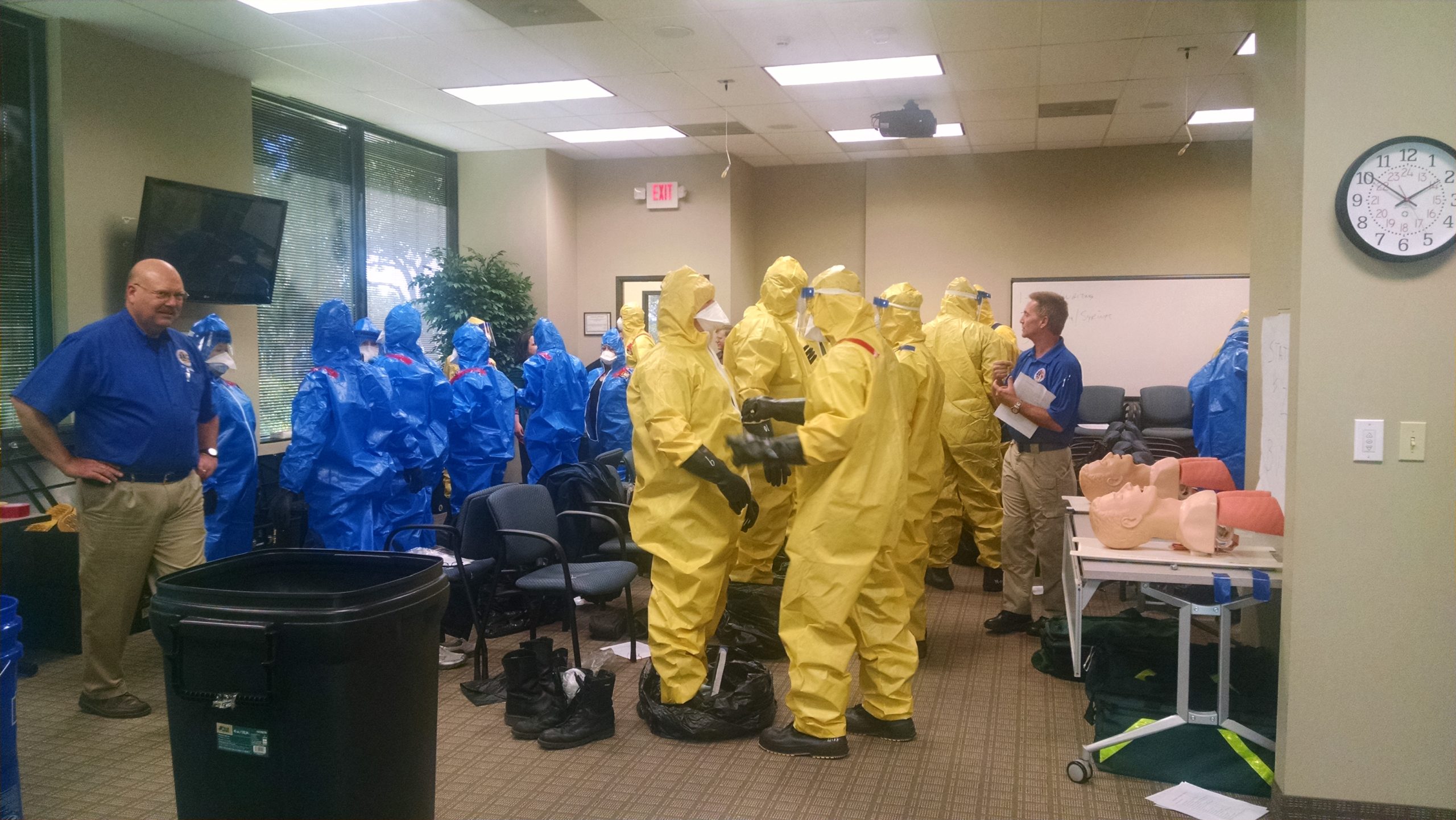TRAINING & EXERCISE
Training and Exercise
The North Central Trauma Regional Advisory Council strives to continuously improve healthcare systems within our region through its Training and Exercise program. Our staff is constantly locating and developing training to assist the region in achieving their goals of preparedness, response, and recovery. Training, drills, and exercises help identify and assess how well a health care delivery system region is prepared to respond to an emergency. These activities also develop the necessary knowledge, skills, and abilities of a HCC member’s workforce. Trainings can cover a wide range of topics including clinical subject matter, incident management, safety and protective equipment, workplace violence, psychological first aid, or planning workshops. The HCC and its members may use the information about these risks and needs to inform training and exercises and prioritize strategies to address preparedness and response gaps in the region.
Healthcare Coalition - E Regional Hazard Vulnerability Analysis (HVA)
A hazard vulnerability analysis (HVA) is a systematic approach to identifying hazards or risks that are most likely to have an impact on the demand for healthcare services or the healthcare delivery system’s ability to provide these services. This assessment may also include estimates of potential injured or ill survivors, fatalities, and post-emergency community needs based on the identified risks.
General principles for the HVA process include but are not limited to the following:
- HCC members should participate in the HVA process, using a Hazard Vulnerability Assessment Tool.
- The HVA process should be coordinated with state and local emergency management organization assessments (e.g., Threat and Hazard Identification and Risk Assessment [THIRA]) and any public health hazard assessments (e.g., jurisdictional risk assessment). The intent is to ensure completion, share risk assessment results, and minimize duplication of effort.
- Healthcare facilities, EMS, and other healthcare organizations should provide input into the development of the regional HVA based on their facilities’ or organizations’ hazard vulnerability assessment.
- The assessment components should include regional characteristics, such as risks for natural or man-made disasters, geography, and critical infrastructure.
- The assessment components should address population characteristics (including demographics), and consider those individuals who might require additional help in an emergency, such as children; pregnant women; seniors; individuals with access and functional needs, including people with disabilities; and others with unique needs.
- The HCC regularly reviews and shares the Regional HVA Report with all members.
- The HCC-E HVA Dashboard, a data visualization, displays the results from past and current HVA Surveys.
HCC-E 2022 Hazard Vulnerability Analysis
HCC-E 2021 Hazard Vulnerability Analysis
HCC-E 2020 Hazard Vulnerability Analysis
INTEGRATED PREPAREDNESS PLAN
The North Central Texas Trauma Regional Advisory Council’s (NCTTRAC) Integrated Preparedness Plan (IPP) – formally known as the Multiyear Training and Exercise Plan (MYTEP) documents the process necessary to strengthen the core capabilities that are deemed essential in preventing, protecting against, mitigating the effects of, responding to, and recovering from regional threats and hazards. The IPP is the roadmap to accomplish the organizational priorities in accomplishing the development and maintenance of the overall preparedness capabilities required to facilitate an effective response to all hazards faced by Trauma Service Area – E (TSA-E).
HCC-E coalition stakeholders are engaged in the Health Care Preparedness and Response Capabilities Program through participation in the Exercise Planning Task Force. The Regional Emergency Preparedness Committee (REPC) establishes the Exercise Planning Task Force as needed to design and plan a series of exercises for each Hospital Preparedness Program (HPP) year.
The HPP – Preparedness Section annually conducts an Integrated Preparedness Planning Workshop (IPPW). This is a collaborative workshop environment for Whole Community stakeholders to engage in the revision of the Integrated Preparedness Plan. The IPPW also serves as a forum to coordinate training and exercise activities across organizations in order to maximize the use of resources and prevent duplication of effort. At the IPPW, stakeholders draw on jurisdiction-specific threats and hazards, identified areas for improvement, core capabilities, external requirements, and accreditation standards or regulations to develop or update the IPP.
TSA – E Healthcare Coalition Integrated Preparedness Plan 2024 – 2025





